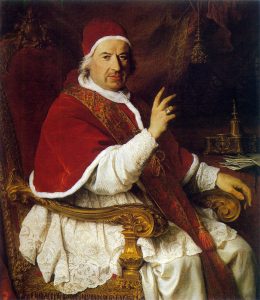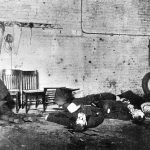Pope Francisco recently reached the throne of Peter because his predecessor decided, wisely perhaps, to retire from the Papacy before his death – a rare festivity in the Roman Catholic faith. Francisco is proving to be an excellent leader of the millions of Catholics on this planet. It is true that he is more popular with poor, ordinary people than the richer among us, following the fashion set first by John Paul II and staunchly sustained by the wise old pianist priest who was and still is a musician of world class. In fact, and this has nothing to do with the article you are now reading, I often find it sad that Ratzinger chose the Papacy instead of the concert hall.
Benedict VIII, original name Teofilatto was the first of the 11th century Tusculan popes, a name given to a series of members of the Tusculani family. Two years after his election he was chased out of Rome by the ‘anti-pope’ Gregory VI (Crescenti family) but was restored to the papal throne by the vigorous actions of the Emperor Henry II. Returning the favour, Benedict crowned Henry emperor in the year 1014. The eighth of this name was a muscular Christian who made war against the Saracens and the Greeks in northern Italy, as well as introducing some notable clerical and monastic reforms.
Benedict IX was the last of these Tusculan popes, and was elected at least twice: 1032 – 44, and 1047/8. He was Benedict VIII’s nephew, actually succeeding another uncle, John XIX in dubious fashion, for which he would in modern times be named corrupt. Not that it matters, but he was less than twenty years old at the time. His many sins caught up with him in 1032 when the Roman population decided he was too immoral, indecent and licentious to be pope. But he got himself back on the throne, only to be thrown off it again. He died in a convent conveniently named Grotti around 1065.
Benedict XIV, real name Prospero Lambertini, was born in 1675 but did not become pope until 1740 when he was sixty-five. He was a scholar with a fine library, and has had praise heaped on him for his moderation and reformist tendencies. Understanding money, as befitts a Lambertini, he managed to stimulate the economy via liberal commercial policies (reduction of taxes for example). He was popular with reigning monarchs because he was far sighted enough to employ the conciliatory approach when he found kings anxious to reduce the power of the Church and swell their own secular jurisdiction. Above all he urged good sense among those responsible for compiling an Index of unlawful literature, by which I mean 18th century pornography. He was by no means weak-spirited, denouncing as incompatible with the Catholic faith some traditional practices (they will not be described here) tolerated by the Jesuits in China and India. His measures in this context undoubtedly set back Jesuit missionary zeal, but they were important in maintaining theological integrity.










Leave A Comment